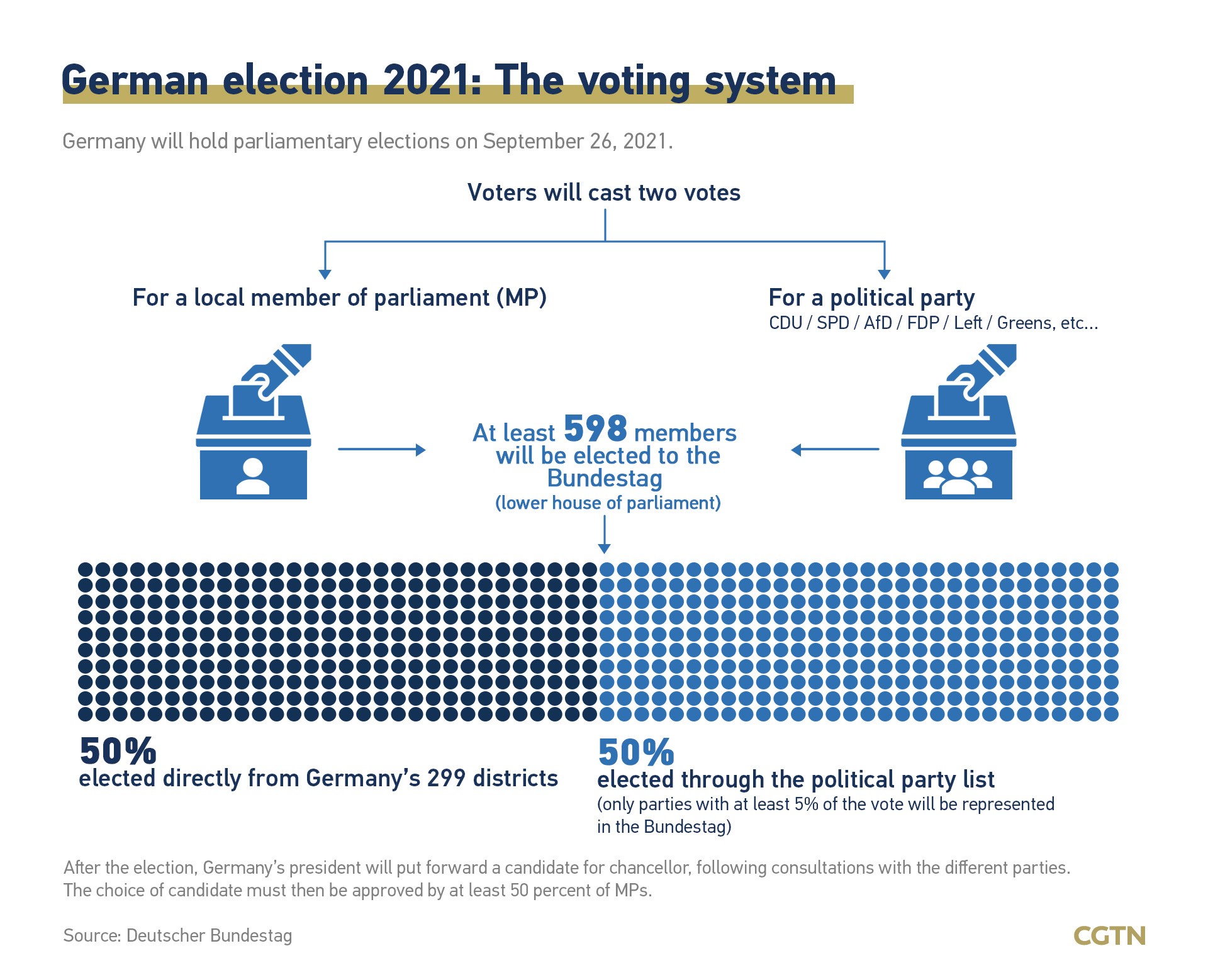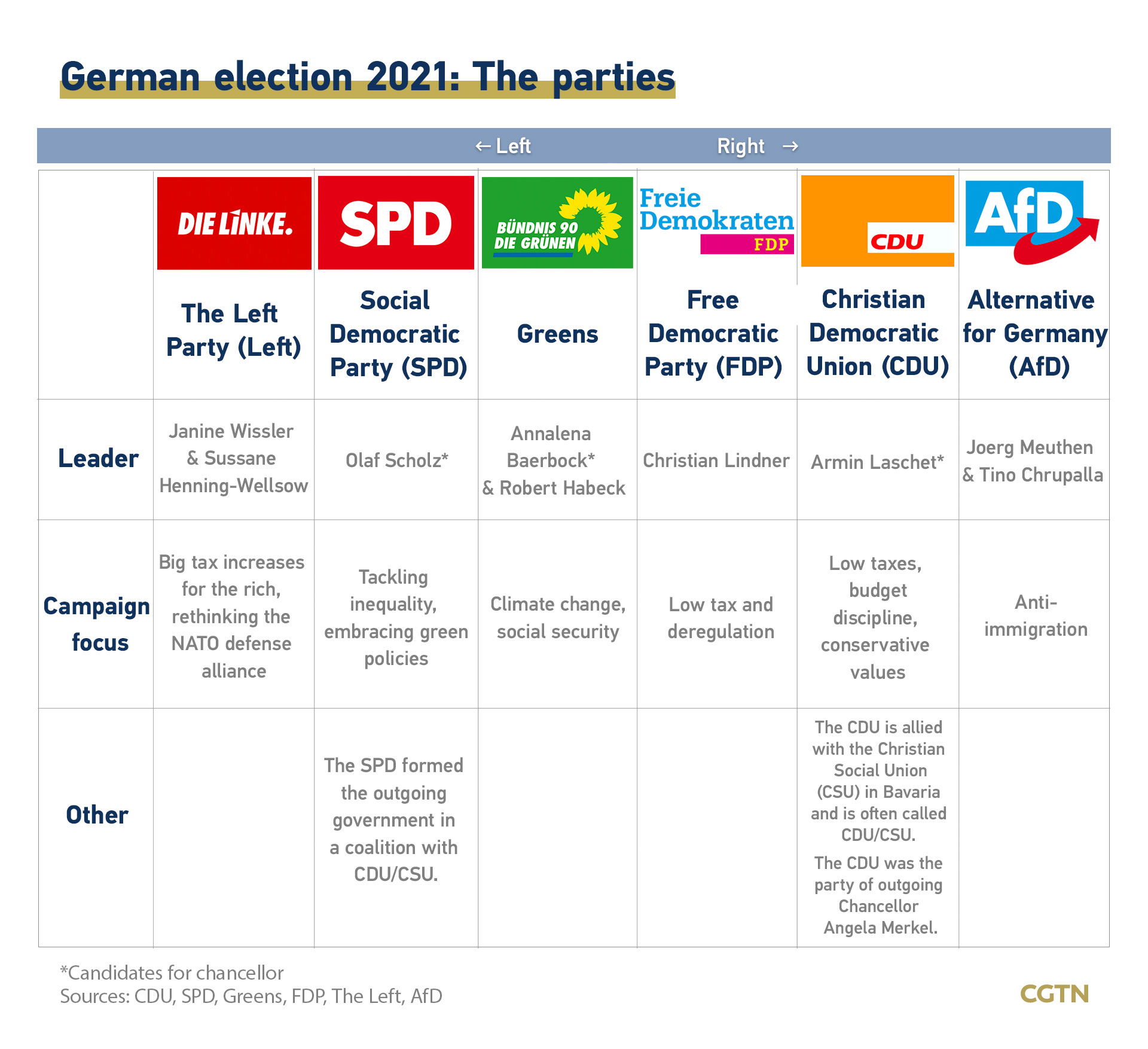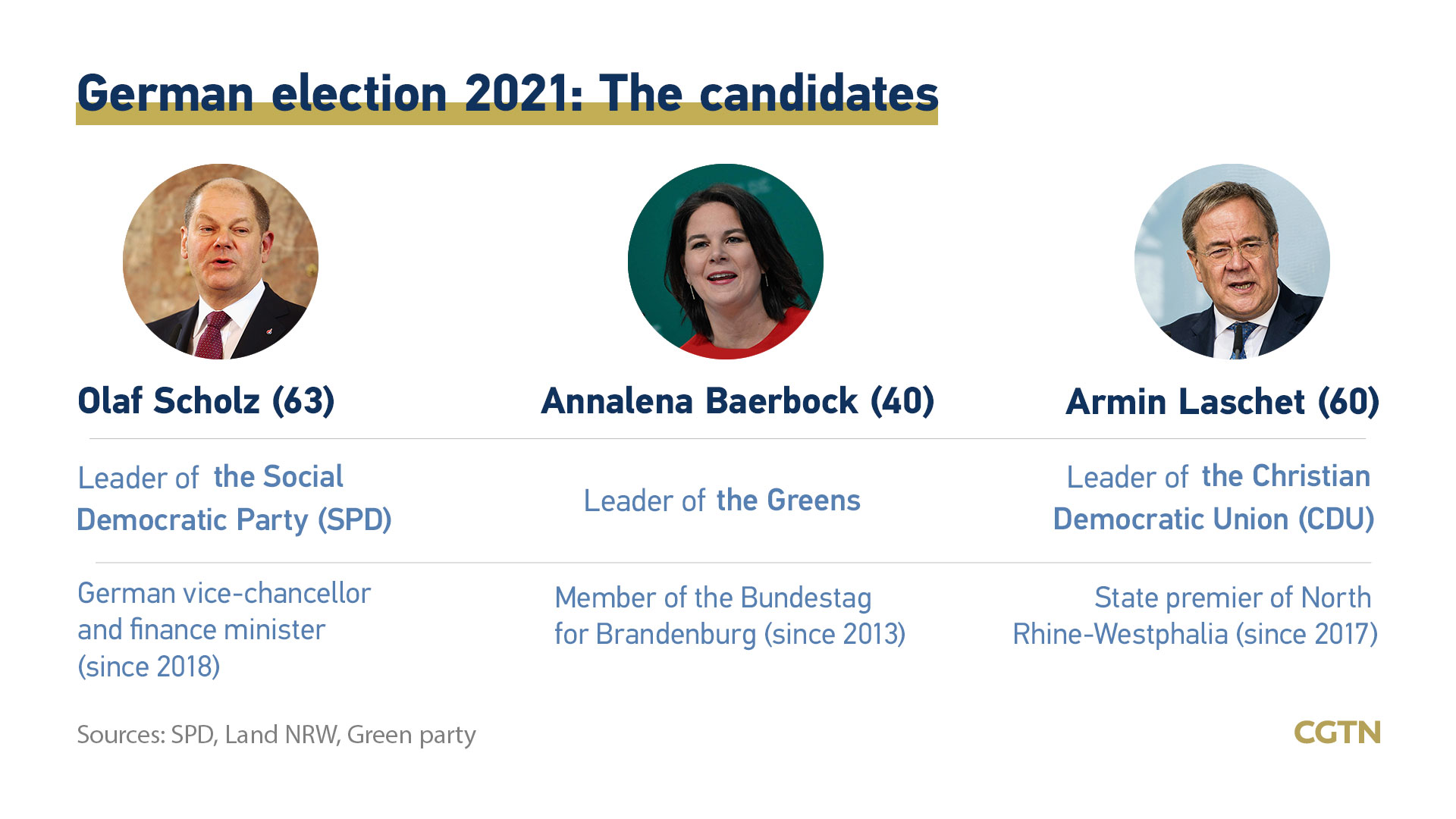Germans will head to polls on Sunday to choose the 20th Bundestag, which will mark the end of longtime leader Angela Merkel's era.
After nearly 16 years in power, Merkel for the first time will not be running and whoever wins the election will determine how the country's post-Merkel era would look like.
Here is what you might want to know about Germany's most unpredictable election in two decades.
How is a new chancellor elected?
The Bundestag, the lower house of the German federal parliament, is elected directly by the Germans. The chancellor is selected by all the members of the Bundestag.

Eligible voters will place two votes on Sunday: one for their representative in the local constituency (the "candidate vote"), and another for the political party lists (the "party vote").
Half of the usual 598 seats in the Bundestag are determined by the "candidate vote" – candidates with the most votes in each constituency win and secure a place in the Bundestag.
The remaining 299 seats are distributed among the parties receiving the highest share of the "party vote." Each party presents a list of candidates in each of the country's 16 federal states.
The number of seats in the Bundestag can be increased to ensure that the share of seats reflects the proportion of the vote a party receives in the two votes. For instance, the outgoing Bundestag was meant to have 598 members but instead was made of 709 seats.
Normally, a single party is unlikely to win an absolute majority of seats in the Bundestag so coalitions are needed among parties to secure more than half of the votes and pick the chancellor.
Who are voting?
About 60.4 million German citizens over the age of 18 are eligible to vote, with 31.2 million women and 29.2 million men.
The majority of voters are aged above 50, and those over 60 make up over one third of the electorate.
According to observers, older voters are more likely to have a long-term party affiliation than younger voters who tend to vote for big tent parties.
There are around 2.8 million first-time voters who are known as the "Merkel Generation" because they knew only Merkel as the chancellor. Although only accounting for 4.6 percent of the total voters, they are seen as a force that could influence the current election given their strong ability to mobilize on social media.
Meanwhile, influenced by the COVID-19 pandemic, an increasing use of postal voting is expected. Election organizers expect the use of mail-in ballots could increase from 28.6 percent in 2017 to 50 percent this time.
Who are running?
This time, a total of 47 parties in the country are contending but in order to enter the Bundestag, a party needs to secure at least 5 percent of the "party vote."
Six parties are likely to clear that hurdle.

-- Christian Democratic Union (CDU)
Merkel's conservative CDU, together with its sister party in Bavaria the Christian Social Union (CSU), has dominated German politics for decades.
-- Social Democratic Party (SPD)
The center-left SPD, the existing oldest political party in Germany has been in coalition with CDU/CSU since the 2013 federal election. The party won 20.5 percent of votes in the 2017 federal election.
-- The Greens
Formed in 1993, the left-wing Greens party is committed to addressing climate change and promoting social justice. The party has become more mainstream over the years, with polls showing it was in a leading position earlier this year.
-- Free Democratic Party (FDP)
The liberal FDP is considered as a "kingmaker" in German politics as bigger parties always rely on them to form a governing majority. Despite being a relatively small party, it has been an ally of CDU/CSU for years but since 2017 has been on the opposition side.
-- Alternative for Germany (AfD)
AfD, the right-wing populist party was born in 2013 as a protest party but is now the largest opposition party in the Bundestag. The party has opposed Germany's EU membership and admission of refugees and rejected climate change.
-- Die Linke (The left)
The Socialist Die Linke has never entered the government but secured seats in every Bundestag election since 2005.
Meanwhile, three parties have fielded their candidates in the race to replace Merkel.

-- The CDU - Armin Laschet
-- The SPD - Olaf Scholz
-- The Greens - Annalena Baerbock
What did the polls say?
Last week's polls from Reuters showed that the SPD is slightly leading the polling aggregate by five points over the CDU/CSU. The CDU/CSU got 21 percent of the votes.
Polling behind the SPD and CDU/CSU is the Greens but votes have dropped from the highest 25 percent in May to around 16 percent, polling showed.
Both the FDP and AfD have been polling at around 11 percent while the Die Linke was at around 6 percent, just above the five-percent threshold.
Meanwhile, a survey published in the Frankfurter Allgemeine Zeitung newspaper last Sunday said four in 10 people are still undecided about which party to pick.
What happens next?
The winners and losers of the election will be revealed within hours after polls close. However, the government coalition negotiation may take weeks or even months.
Apart from knowing each other's desire for cooperation, parties have to discuss details of their coalition plan such as which party holds which ministry.
According to the current polling, a government coalition could need three parties, which would be a first in the country. The new chancellor will only be voted in the Bundestag after a coalition agreement is reached.
There is no time limit on government formation and the outgoing government remains in power during the negotiation period. In 2013, it took almost three months to form a government and in 2017 it took nearly six months.

